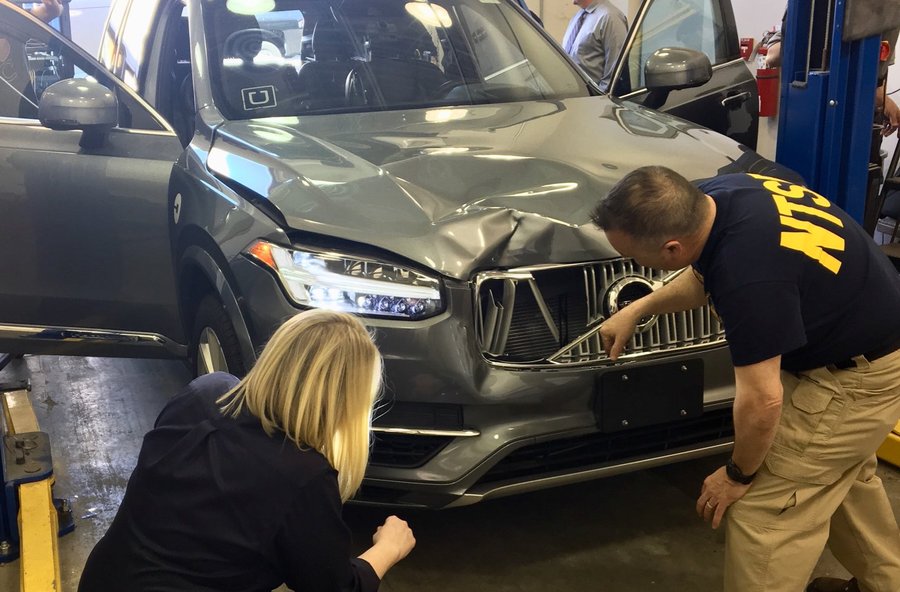Uber won't face criminal charges in fatal Arizona self-driving crash

Uber Technologies is not criminally liable in a March 2018 crash in Tempe, Arizona, in which one of the company's self-driving cars struck and killed a pedestrian, prosecutors said on Tuesday.
The Yavapai County Attorney said in a letter made public that there was "no basis for criminal liability" for Uber, but that the back-up driver, Rafaela Vasquez, should be referred to the Tempe police for additional investigation.
Prosecutors' decision not to pursue criminal charges removes one potential headache for the ride-hailing company as the company's executives try to resolve a long list of federal investigations, lawsuits and other legal risks ahead of a hotly anticipated initial public offering this year.
The crash involved a Volvo XC90 sport utility vehicle that Uber was using to test self-driving technology. The fatal accident was a setback from which the company has yet to recover; its autonomous vehicle testing remains dramatically reduced.
The accident was also a blow to the entire autonomous vehicle industry and led other companies to temporarily halt their testing. Scrutiny has mounted on the nascent technology, which presents fatal risks but has minimal oversight from regulators.
Vasquez, the Uber back-up driver, could face charges of vehicular manslaughter, according to a police report in June. Vasquez has not previously commented and could not immediately be reached on Tuesday.
Based on a video taken inside the car, records collected from online entertainment streaming service Hulu and other evidence, police said last year that Vasquez was looking down and streaming an episode of the television show "The Voice" on a phone until about the time of the crash. The driver looked up a half-second before hitting Elaine Herzberg, 49, who died from her injuries.
Police called the incident "entirely avoidable."
Yavapai County Attorney's Office, which examined the case at the request of Maricopa County where the accident occurred, did not explain the reasoning for not finding criminal liability against Uber. Yavapai sent the case back to Maricopa, calling for further expert analysis of the video to determine what the driver should have seen that night.
An Uber spokeswoman declined to comment on the letter.
The National Transportation Safety Board and National Highway Traffic Safety Administration are still investigating.
The Maricopa County Attorney's Office did not immediately comment on Tuesday.
Uber in December filed confidentially for an initial public offering and is expected to seek a valuation of up to $120 billion. Its self-driving program, which costs hundreds of millions of dollars and does not generate revenue yet, is likely to come under scrutiny by investors.
The ride-hailing company, which last year lost about $3.3 billion, is betting on a transition to self-driving cars to eliminate the need to pay drivers.
At an autonomous vehicles conference in Silicon Valley last week, industry leaders lamented the loss of confidence from the public, regulators and investors that lingers a year after the Uber crash. There is no consensus on safety standards for the industry.
In March 2018, authorities in Arizona suspended Uber's ability to test its self-driving cars. Uber also voluntarily halted its entire autonomous car testing program and left Arizona.
In December, Uber resumed limited self-driving car testing in Pittsburgh, restricting the cars to a small loop they can drive only in good weather. The company is now testing with two people in the front seat and more strictly monitors safety drivers. The company also said last year it made improvements to the vehicles' self-driving software.
Uber has not resumed testing in San Francisco or Toronto, where it previously had programs. (Reporting by David Shepardson. Additional reporting by Heather Somerville in San Francisco and David Schwartz in Phoenix; Editing by Grant McCool and Cynthia Osterman)
Related News
